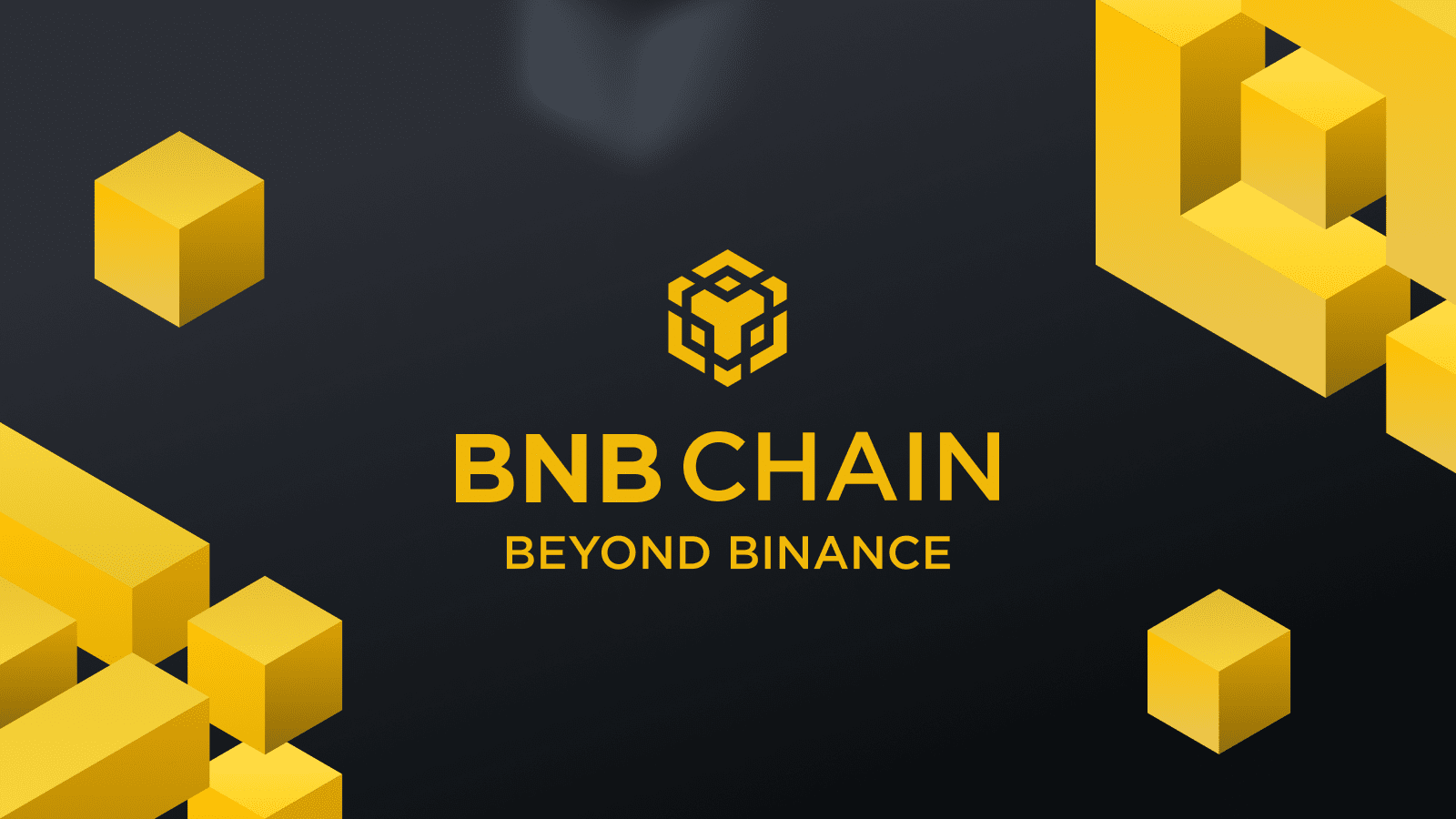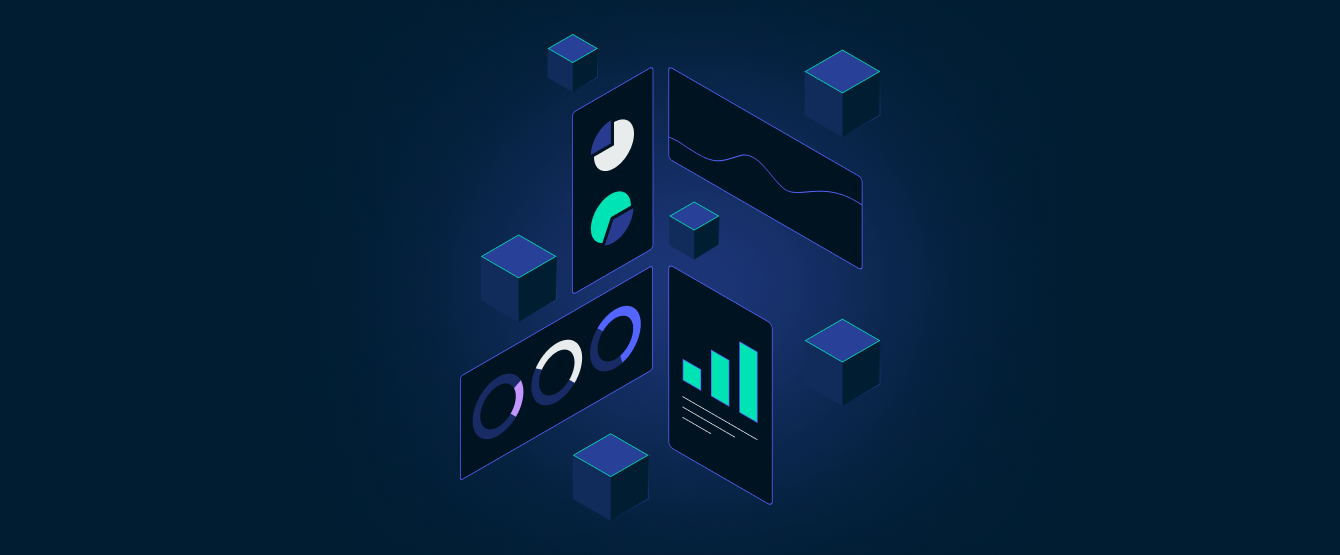Binance and BNB Chain: What’s the Difference?
World - 13/11/2022. Συντάκτης: Newsroom

Main Takeaways
-
Binance is a centralized organization behind an expansive ecosystem that includes the largest digital asset exchange in the world by trading volume, among a vast range of other products and services.
-
BNB Chain was originally initiated by Binance but has since grown to become a community-driven, permissionless, and decentralized blockchain ecosystem.
-
Binance is now simply one of the many contributors operating within the BNB Chain ecosystem rather than some kind of dominant force wielding unilateral power over it. Binance does not own or control BNB Chain.
Binance is a company that exists to take crypto to the masses and help move the world to a decentralized digital future. Learn more about how Binance helped launch the world’s largest smart-contract blockchain by transaction volume. BNB Chain now exists as a fully decentralized ecosystem run by its community and a distributed network of validators.
Today, Binance runs the largest digital asset exchange in the world by trading volume. Back in 2017, it launched the BNB utility token, with the initial use case of allowing users to receive discounts when paying their trading fees. That token has since added hundreds of other use cases. One of them is paying fees to use BNB Chain, which, as of October 2022, is the largest smart-contract blockchain in terms of transaction volume, with an ecosystem of more than 1,300 active decentralized applications (DApps).
Because of the fact that Binance was originally involved in initiating the blockchain, many people mistakenly assume that Binance and BNB Chain can be spoken of as one and the same — that it is “Binance’s chain”. This, however, is not the case.
This article will explore the history of Binance, the history of BNB Chain, and explain why — in reality — the company founded by Changpeng Zhao and Yi He has no ownership of the decentralized blockchain ecosystem it once helped create, and still supports today.
What Is Binance?
Binance was launched in July 2017 as a cryptocurrency exchange driven by a vision of providing a simple, usable platform for people to trade digital assets such as Bitcoin and Ethereum. Binance’s co-founders were Changpeng Zhao, known as CZ, and Yi He.
Within 180 days of launch, they managed to grow Binance into the largest digital asset exchange in the world by trading volume. Five years later, the platform remains top of that chart, processing tens of billions of dollars in transactions per day. In April 2022, The Washington Post reported that Binance has four times the spot trading volume of its nearest competitor on a typical day.
Over the years, however, Binance has grown into more than a trading platform. Today, the exchange is just one part of the company’s product suite, with Binance establishing itself as the world’s leading blockchain ecosystem. This includes initiatives such as:
Binance Labs — an accelerator that incubates and invests in blockchain projects.
Binance Pay — a contactless, borderless and secure crypto payment technology.
Binance Academy — an open-access learning hub providing free blockchain education.
Binance NFT Marketplace — a platform to create and trade digital art and collectibles.
Binance Charity — a not-for-profit foundation advancing blockchain-enabled giving.
All these strands feed into Binance’s mission to be the infrastructure service provider in the crypto space and contribute to building a world where blockchain helps people achieve financial freedom. Everyone should be able to make their own decisions and control their own affairs — no matter who they are or where they’re from.
These are the ideas that fuel the Web3 revolution, the push towards the next generation of the internet where decentralized blockchain tech lets people control their own data and online lives. As CZ has said: “Centralized exchanges provide an incremental step for users to access crypto and can act as a bridge between centralized and decentralized systems.” Binance stands at the forefront of that vision for change, paving the way to freedom for millions, and potentially billions of people around the world.
What Is BNB Chain?
Build N Build (BNB) Chain is a distributed blockchain network upon which developers and innovators can build decentralized applications (DApps) as part of the move to Web3.
Decentralization is one of the core properties of Web3 blockchain technology and its applications. The key design principle of such systems is that there is no one person or organization in charge. Rather, the tech allows users to transact safely without having to rely on a third party to maintain trust. It also opens the door for computer software known as smart contracts to automate many of these interactions, allowing for the creation of decentralized applications that support a wide array of products — from financial services (DeFi) to games (GameFi) and digital collectibles (NFTs).
As of October 2022, BNB Chain is the world’s largest smart-contract blockchain in terms of transaction volume and daily active users. At the time of writing, it has processed 3 billion transactions from 163 million unique addresses, and has an ecosystem of more than 1,300 active DApps. The decentralized nature of the network means anyone can build a product on BNB Chain without having to ask for permission, and potentially reach a massive audience.
The history of BNB Chain stretches back to April 2019 when Binance launched what was then known as Binance Chain. At that point, the BNB utility token — which was originally designed to lower the trading fees users pay on Binance — switched over from the Ethereum network, where it was launched in 2017, and became the token of Binance Chain. September 2020 then saw the launch of what was formerly called Binance Smart Chain. The key feature of this new chain was the addition of smart-contract functionality and the ability for developers to build DApps.
All this came together with the February 2022 launch of BNB Chain, which consists of BNB Beacon Chain (previously Binance Chain) and BNB Smart Chain (previously Binance Smart Chain). The former is focused on governance (staking and voting) while the latter continues to serve as the infrastructure for building a sprawling ecosystem for large-scale decentralized apps. Crucially, BNB Chain exists as a community-driven, open-sourced, and decentralized ecosystem.
Binance Does Not Own or Control BNB Chain
The nature of the relationship between BNB Chain and Binance can appear confusing to some people. The fact that BNB Chain came into existence following the earlier launches of Binance Chain (2019) and Binance Smart Chain (2020) leads to many simply assuming that it must be another Binance product or project — much like Binance Pay or Binance Labs. Similarly, because the BNB token was originally created to pay fees on Binance, it’s also often assumed that there must be some kind of ownership or control of both the chain and the token on Binance’s part.
However, there’s one key difference between BNB Chain and Binance that needs to be understood: BNB Chain is a decentralized blockchain ecosystem whereas Binance is a centralized company seeking to serve the Web3 world.
In practical terms, no one person or organization has ownership of the BNB Chain. Yes, Binance introduced the original idea, contributed some code for BNB Chain, and remains a committed supporter. But at the same time, Binance’s original vision for BNB Chain was for the network to be independent and decentralized. Anyone can gather BNB stakes to become a network validator. At the time of writing BNB Smart Chain is already on its way to 41 active validators.
On the other hand, Binance, even though it is a highly distributed and horizontally structured organization, is centralized. Ultimately, it is the company’s leadership that has the power to determine the direction in which the ecosystem moves — even though it is the user’s needs that are always at the center. Binance can’t dictate what BNB Chain does, because that is up to the chain’s community and validator consensus.
Centralization Versus Decentralization
One of the advantages of Binance’s centralized nature is that people know who is behind the services they are using. It also means they have someone to turn to if they need help. Binance prides itself on being user-focused, with customer service on hand 24/7 to assist with information, complaints, security, or any other matter. This is how Binance serves as a reliable on-ramp for millions of people embarking on their Web3 journey.
A user can never lose access to their crypto stored on Binance because of a forgotten or lost password. Customers can also use the platform’s services safe in the knowledge that Binance meets all legal requirements when it comes to regulatory compliance and anti money-laundering policies.
BNB Chain, meanwhile, is — as discussed above — decentralized. This means it provides more freedom for users to explore Web3 with greater independence and full control of their own data and security. Anyone can access the chain and its apps without permission, as long as they have a crypto wallet and some BNB to pay for fees. But they also need to be more experienced as there’s no one to turn to should anything go wrong.
Working Towards Web3
Ultimately, Binance and BNB Chain are part of the same push to Web3. Both exist with the purpose of helping everyday people around the world achieve the freedom and security they deserve to control their own online transactions, data, and digital lives.
Binance exists with that very mission in mind. As a centralized digital asset exchange, it offers an easy and safe way into the world of crypto and Web3 for millions of people across the globe. When those users have become more experienced, they can then dive deeper into exploring the decentralized internet through the DApps on BNB Chain.
As Binance’s CZ says: “We are a big proponent of decentralization. At Binance, we believe in taking incremental steps as well as providing users with options for all available tools. Binance invests heavily in the development of both CEX [centralized] and DeFi [decentralized] solutions and we will continue to be advocates for a future where freedom and security can go hand in hand.”
BNB Chain as a decentralized network will always have a history and relationship with Binance the company, but there is zero ownership or control involved. The chain has its community and validators, and there’s no one single entity that can dictate the decisions taken, least of all a centralized exchange. Above all else, Binance is but a humble part of the BNB ecosystem, rather than the other way around.
Source: binance.com
Array













